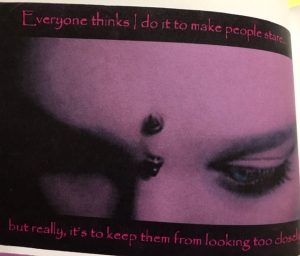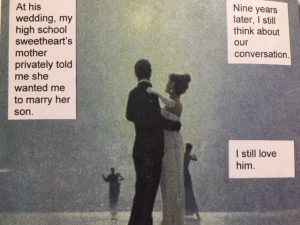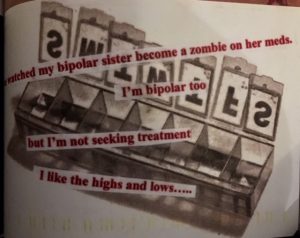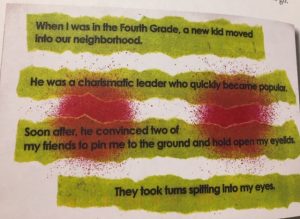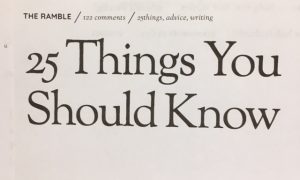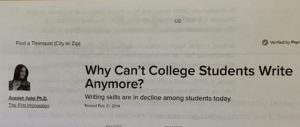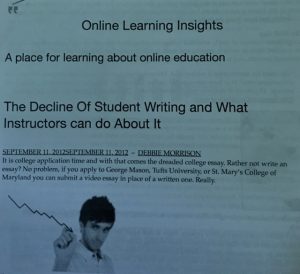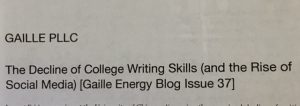Writing
Emojis: Yea or Nay?








- Over 90% of the world’s 3.2 billion internet users regularly send “picture characters” (as the word means in Japanese) with over 5 billion being transmitted everyday on Facebook Messenger alone.
- The 2009 movie Moon features a robot who communicates in a neutral-tone synthesized voice plus a screen showing an emoji representing the corresponding emotional content.
- In 2014, the Library of Congress acquired an emoji version of Herman Melville’s Moby Dick.
- In 2015, Oxford Dictionaries named the Face with Tears of Joy emoji the Word of the Year.
- May 2016, Emojiland, a musical, premiered in Los Angeles.
- October 2016, the Museum of Modern Art acquired the original collection of emojis from 1999.
- November 2016, the first emoji convention, Emojicon, was held in San Francisco.
- In 2016, a High Court judge in England included a smiley face emoji in an official ruling, in an attempt to make the judgment in family court clear for the children it affected.
- March 2017, the first episode of Samurai Jack featured alien characters who communicate in emojis.
- April 2017, Doctor Who featured nanobots, called Emojibots, who communicate using emojis only.
- July 2017 Sony Pictures Animation released The Emoji Movie.



Historical Fiction

Clichés—True But Tired!
When Writers Wait
Things to do during any wait
Things to do while waiting when noise isn’t an issue
Opportunities in specific places
Horror Week is Here
- They explore malevolent or wicked characters, deeds, or phenomena.
- They arouse feelings of fear, shock, or disgust as well as the sense of the uncanny.
- They are intense.
- They contain scary and/or shocking and scintillating plot twists and story reveals.
- They immerse readers in the macabre.
- How to write horror using a strong, pervasive tone.
- The importance of reading widely in your genre.
- Giving wicked characters credible motives
- Using the core elements of tragedy
- Writing scary novels by tapping into common human fears.
- The difference between terror and horror.
- Shirley Jackson: Use your own fear.
- R.I. Stine: Get inside your narrator’s head.
- Tananarive Due: Don’t worry about being “legitimate.”
- Ray Bradbury: Take your nonsense seriously.
- Anne Rice: Go where the pain is.
- Clive Barker: The scariest thing is feeling out of control.
- Linda Addison: Just start writing and fix it later.
- Neil Gaiman: Tell your own story.
- Helen Oyeyemi: Keep it real (kind of).
Writing Roundup: The Right Words
Writing dialogue– or even simple descriptions– can be stressful. I’ve written about it a few times myself! Here are a few posts about appreciating good language/the right words.
- Loving Language
- When Less is More
- This Just In!
- Use and Abuse of Passive Voice
- Why Lie?
- Verbal Tics– Use and Abuse
Do you have any suggestions for additional posts or questions about language? Let me know!
Is the Quality of Writing Declining? And if So, Why?
- Children need to learn how to transcribe both by hand and through typing on a computer.
- Children need to practice writing great sentences before writing paragraphs.
- They need clear feedback on their writing.
- Students need a synthesis of freewriting without a focus on transcription or punctuation AND grammar instruction.
- Social Media Displacement of Reading. The basic issue is that students engage in social media rather than serious reading as a leisure activity.
- Digital Brains. Cites cognitive neuroscientists’ conclusions that touching, pushing, linking, scrolling and jumping through text accounts for students’ difficulties with reading the classics.
- College is Less Rigorous. (He cites research.)
- Writing Skills Are No Longer Graded. I.e., “[c]ontent alone matters, not how well the student expressed it.”
- Text Slang. This includes shortcuts, alternative words, or symbols to convey thoughts in an electronic document.
- 50% of women, 36% of men
- 50% of whites, 29% of African-Americans, 27% of Hispanics
- 68% of people with a graduate degree, 59% with a bachelor’s degree, 30% with a high school education
- our language cannot “die” as long as people speak it
- language change is a healthy and inevitable process
- all human languages are rule governed, ordered, and logical
- variations between different groups of speakers are normal and predictable
- all speakers employ a variety of speech forms and styles in response to changing social settings
- most of our attitudes about language are based upon social rather than linguistic judgment
Writing Roundup: Toxic Relationships
Are you an author in need of resources for writing toxic relationships? Look no further! Here is a roundup of some of my posts detailing ways in which you can write such dynamics.
- Who’s Got the Power?
- The Dark Side of Intimate Relationships
- Sex: When It’s Good, It’s Very Very Good; But When It’s Bad…
- What About Healthy Relationships?
- Writing Relationships: Why Not Get the Hell Out of Dodge?
- Writers Need Toxic Relationships
Do you have any suggestions for additional posts or questions about toxic relationships? Let me know!
Writing Roundup: Psychology for Writers
I’ve written quite a few blog posts about psychology for writers. I’ve rounded them all up for you here in one convenient place so that you can browse at your leisure!
- Psychology of Uncertainty: Better the Devil You Know
- Psychology for Writers
- When Characters are in Conflict with Themselves: Psychology & Folk Wisdom
- Weather for Writers
- What Sadistic Sob Would Do That?
- Characters’ Inaction Speaks Louder than Words
Do you have any suggestions for additional posts or questions about psychology for writers? Let me know!
